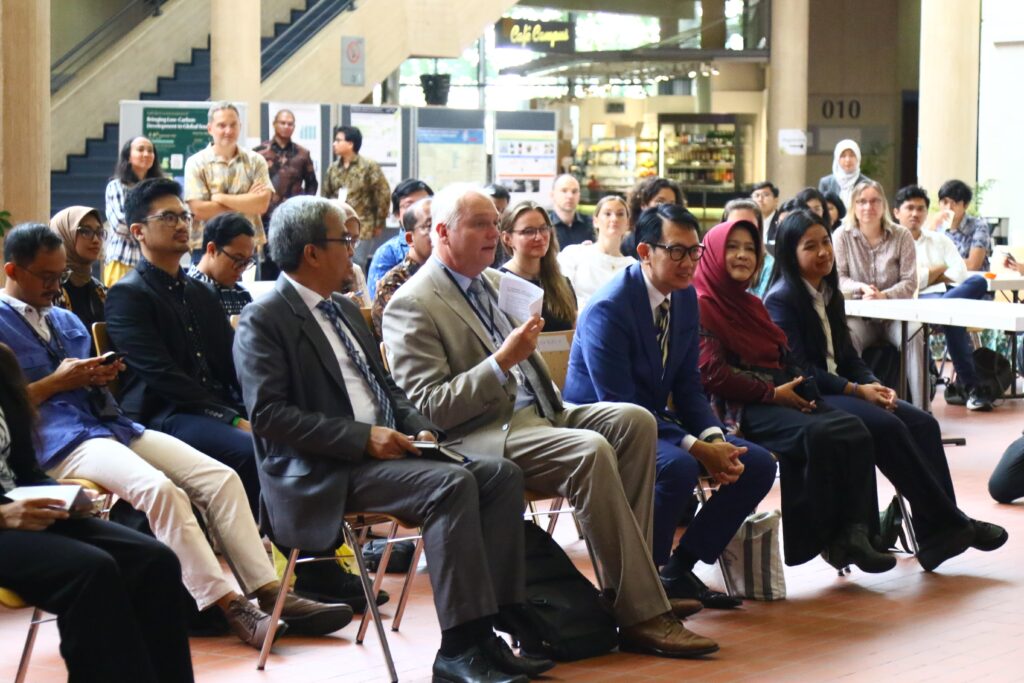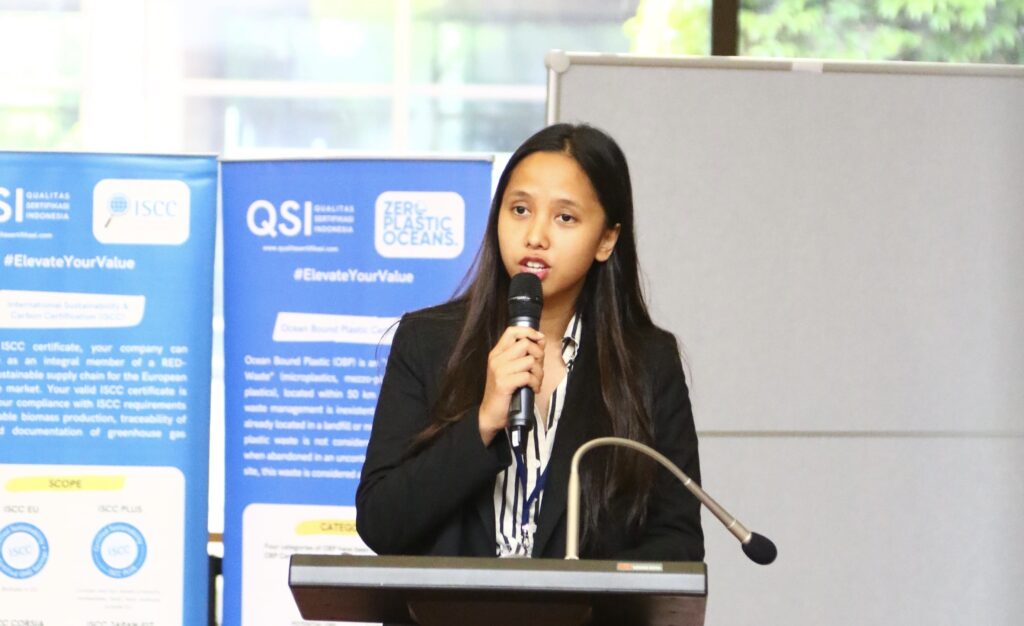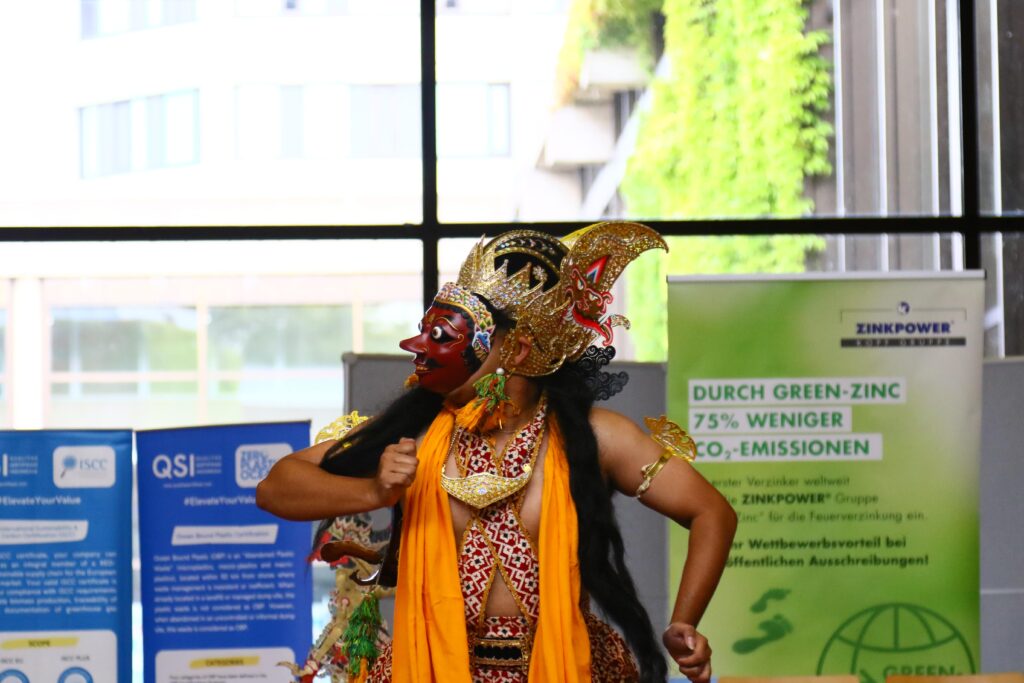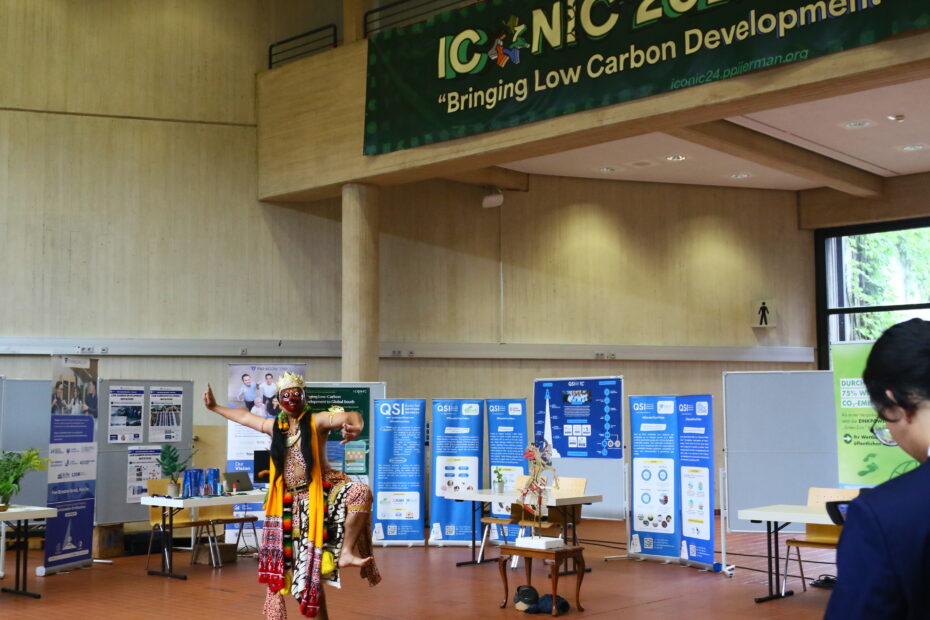At the 5th International Conference of Integrated Intellectual Community (ICONIC 2024) in Göttingen, policy makers, academics and industry stakeholders met and discussed how low carbon can be achieved in the Global South, specifically in the context of Indonesia. The opening ceremony was held in the Central Lecture Hall (ZHG) of Georg-August University Göttingen, on September 4, 2024. The conference aims to provide a platform for bilateral conversations to take place. The opening ceremony began with remarks from Prof. Bernhard Brümmer, Vice President for Research and Sustainability of the University of Göttingen, Arif Havas Oegroseno, Ambassador of the Republic of Indonesia to the Federal Republic of Germany, Dr. Desti Alkano, the CEO of Energy Academy Indonesia (ECADIN), and Sekar Yunita, Director of ICONIC 2024. Indonesian traditional dance called “Topeng Kelana” presented warm and festive greetings to all the attendees.

The conference began with a plenary session on Indonesia’s strategy in carrying out its zero emission commitment by 2060. To open the Ministerial Talk session, Lakshmi Dhewanthi, Directorate General (DG) of Climate Change of the Ministry of Environment and Forestry of Indonesia, presented impressive financing strategies and achievements Indonesia has made towards zero emission commitment in 2060. “Indonesia is committed to contributing to decarbonization efforts, but we have to establish an adaptation strategy that is transparent, inclusive, with integrity and just.” Ms. Dhewanthi confirmed. “We established these strategies in 2010, even before it was mandatory to reduce (greenhouse gas) carbon emissions,” Ms. Dhewanthi noted, “Indonesia is ready for carbon trading.”
Dr. David Tantow, Deputy Head of Southeast Asia at the Ministry of Economic Cooperation and Development (BMZ) of the Federal Republic of Germany, elaborated on collaborations between Indonesia and Germany: climate and energy just transition, training and sustainable growth development, and protection of natural resources. “We have an Indo-Pacific strategy which outlines the strategy for the region, and Indonesia plays a central role in it,” he said. He also talked about BMZ support in sustainable urban development projects in Surabaya, and landfill projects in Malang and Sidoarjo.
Arif Havas Oegroseno, Ambassador of the Republic of Indonesia to the Federal Republic of Germany, shared that the Minister of Finance Sri Mulyani has previously stated that Indonesia will need 281 billion USD (3,500 trillion IDR) until 2030 to adapt to climate change with adaptation and mitigation. “Does the Indonesian government have the money to address climate change’s impact on Indonesia? No… and no one is coming to help.” He also mentioned the unjust articles in European Union Deforestation Regulation (EUDR) and its potential to hurt small business owners with its stringent, multi-layered rules.
PPI Jerman (Indonesian Student Association in Germany) is envisioned to bring indonesian Students together, protect and fight for the interests of its members in order to improve their competences and optimize all existing potential for the realization of a just and prosperous Indonesian society. ICONIC 2024 is an academic conference that serves as a platform for Indonesian students who are interested in sustainability and climate change mitigation.

The next plenary session was to discuss decarbonization strategies in industrial and transport sectors, with Prof. Dr. Dr. h.c. Cornelius Herstatt, Professor for Technology and Innovation Management, Technical University of Hamburg, Bimo Kusumo, Project Develpment Manager at WPD GmbH, Bondan Susilo, Head of Environment, PT Astra International Tbk., and Ryanza Prasetya, Director of PT Qualitas Sertifikasi Indonesia.

Author: Evelyn Sutiono and Fadlilah Nur Hasanah
